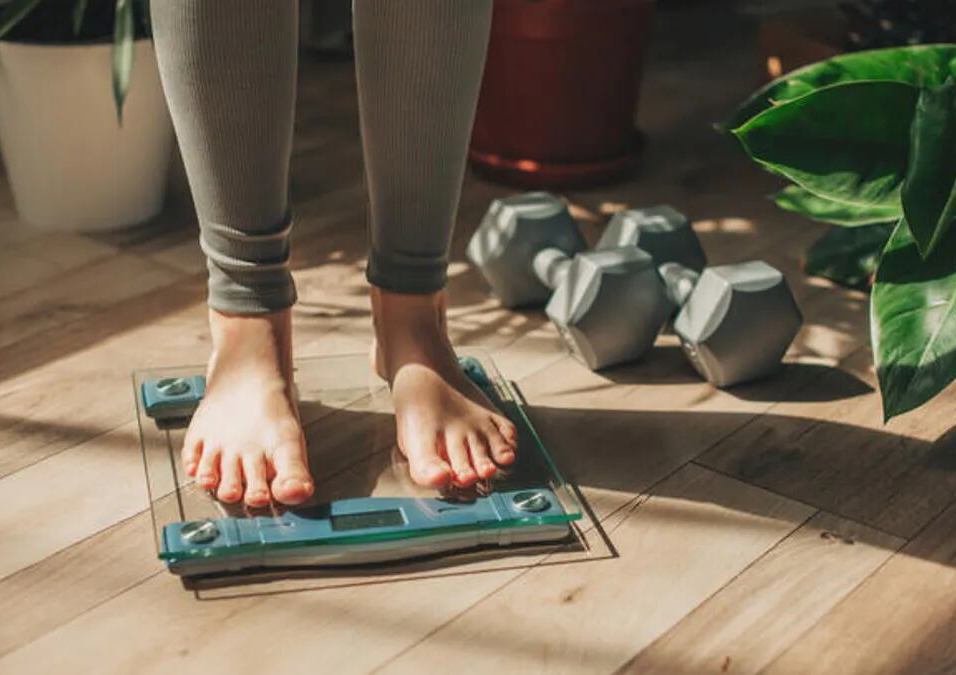Best Times to Weigh In

SIGN UP FOR YOUR FREE DAY PASS TODAY!
Interested in focusing on weight loss in a sustainable and personalized way?
Keep in mind that the number on the scale is just one aspect of your overall progress.
While it can be useful, it doesn't provide a comprehensive picture.
Factors like muscle development, body composition, and even how your clothes fit can often tell a more detailed story than weight alone.
By tracking body measurements in addition to your scale readings, you can get a clearer understanding of your progress.
If you're relying on a scale as part of your monitoring process, timing plays a crucial role.
Weight naturally fluctuates throughout the day due to factors like meals, hydration, exercise, and more.
Following a few straightforward tips can help make your weigh-ins more accurate and consistent.
Here's a guide to help you maximize the value of using a scale during your weight loss journey.
Want more wellness insights? Check out why weightlifting can help you maintain weight loss and explore a handy visual guide to ensure you’re getting enough protein each day.
When Is the Best Time to Check Your Weight?
For the most accurate readings, weigh yourself in the morning. Do it right after using the restroom and before consuming breakfast or drinking water.
Experts suggest that this is the best time of day because your body has processed the food and beverages from the previous day, leaving your stomach relatively empty for a balanced measurement.
What Time Should You Avoid Using the Scale?
While there’s no "worst" time to weigh yourself, some situations can temporarily skew your results.
Avoid weighing yourself after eating a heavy meal or drinking a large amount of liquid, as this can lead to temporary weight increases.
Similarly, stepping on the scale right after a workout might show a lower weight due to fluid loss from sweating.
If you experience menstrual cycles, be aware that the days leading up to your period can cause weight fluctuations due to hormonal changes.
Additionally, it’s completely normal for weight to vary throughout the day or between days. If abrupt weight changes concern you, it’s always a good idea to consult your doctor.
What's your go-to workout time?
Tips for Accurate Scale Readings
Beyond choosing the optimal time, several other steps can help ensure reliable results when tracking weight changes:
- Weigh yourself consistently, such as once a week, at the same time of day.
- Place your scale on a hard, level surface for stability.
- Stand barefoot and ensure your weight is evenly distributed between both feet.
- Wear minimal or no clothing during weigh-ins. Whatever clothing option you choose, keep it consistent for greater accuracy.
Knowing When to Step Away From the Scale
If the scale begins to have a negative impact on your mental well-being, it’s perfectly acceptable to stop using it. Consider avoiding the scale if it’s causing any of the following:
- Persistent negative thoughts.
- Feelings of anxiety or sadness after weighing yourself.
- The development of harmful or unsafe habits.
- Struggles with an eating disorder, whether you're currently experiencing one, recovering from one, or have dealt with one in the past.
Final Thoughts
Your weight is just one part of your health and wellness story.
If you’d like additional tips, explore ways to include more fruits and vegetables in your meals or discover why adding carbs, rather than cutting them, could benefit your diet.
Source: cnet
The opinions shared in the GymNation blog articles are solely those of the respective authors and may not represent the perspectives of GymNation or any member of the GymNation team.
GET YOUR FREE TRIAL TODAY

















































































